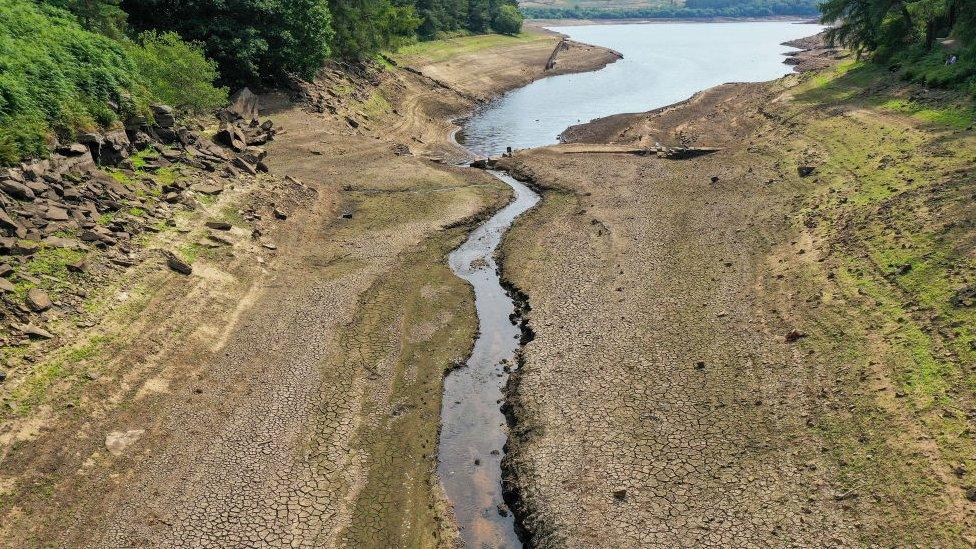Yorkshire hosepipe ban comes into force amid falling reservoir levels
- Published
- comments
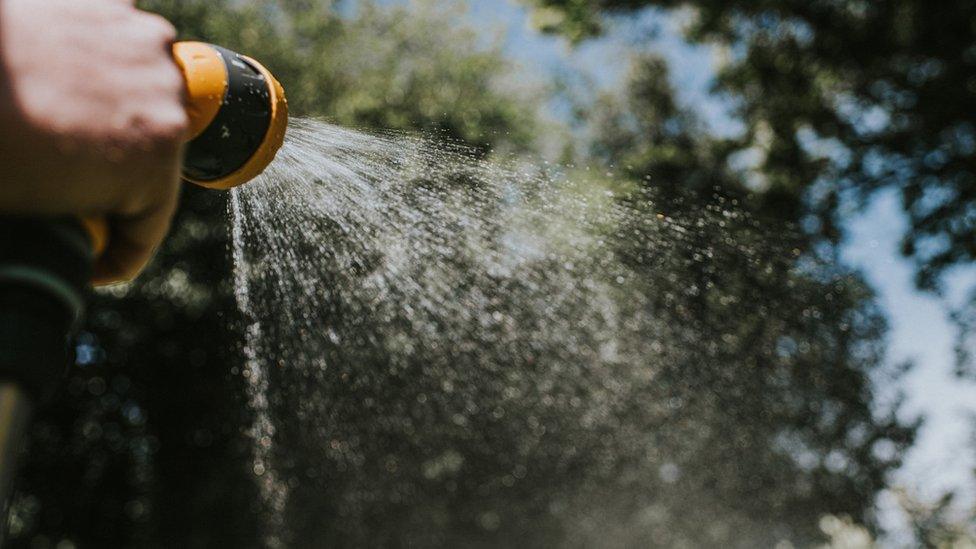
The restrictions prevent activities such as watering the garden, cleaning the car or filling a paddling pool with a hosepipe
A hosepipe ban affecting about five million people across Yorkshire has come into force.
Yorkshire Water said the ban was the first it had imposed in 27 years and was necessary due to a significant decline in reservoir levels.
The county also recorded below long-term average rainfall for the fifth month in a row in July, according to the Environment Agency (EA).
Anyone breaking the temporary ban could face a fine of up to £1,000, external.
Similar measures have been implemented by other water companies including across London and the Thames Valley, Hampshire and the Isle of Wight and Kent and Sussex following the driest July since 1935.
Yorkshire Water said it had done all it could to avoid imposing restrictions, but it had become necessary after reservoir levels fell below 50% for the first time since the drought of 1995.

Neil Dewis, the company's director of water, said: "We need to make sure that we have enough supply for the essential needs of people across the region this year and next, as well as making sure we're able to protect our local environment by limiting the amount of water we have to draw from the rivers.
"Having a hosepipe ban in place also allows us to apply for drought permits from the Environment Agency, which means we can abstract more water from our rivers and reduce flows out of our reservoirs so that we can continue to provide the water our customers rely on us for."

Analysis: BBC Yorkshire climate correspondent Paul Hudson
Although some parts of the country have experienced heavy rainfall in the last 24 hours, very little has fallen in Yorkshire.
With less than a week to go of meteorological summer, less than 50% of expected rainfall has been recorded across the county - following an exceptionally dry spring.
As a consequence average reservoir levels continue to fall - with the latest figure now less than 45%.
So, Yorkshire Water will be hoping that the hosepipe ban will reduce customer demand.
But it's also a technical step which will allow the company to apply to the Environment Agency to take more water out of some of our rivers.
Water is already, for example, pumped out of the River Ouse and piped across to Eccup reservoir in West Yorkshire, which supplies drinking water to Leeds.
As a result of the hosepipe ban, they can now apply to take more.
Just as well, with more dry weather expected as we head through late August and into early September.

The EA officially moved Yorkshire to drought status on 16 August, a decision based on low river flows, groundwater and reservoir levels.
The move does not automatically trigger action, but allows the agency and water companies to increase efforts to manage the impact.
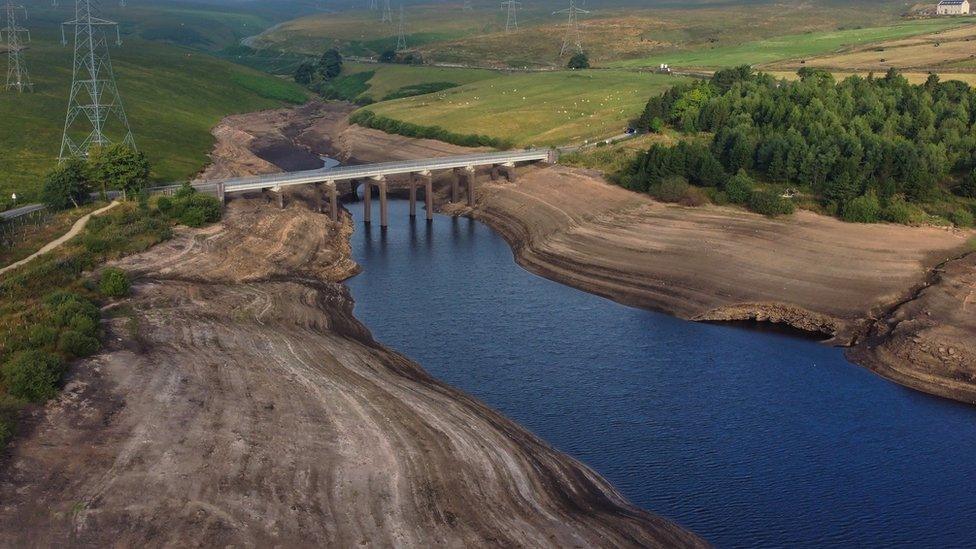
Yorkshire Water said reservoir levels, like here at Baitings Reservoir in West Yorkshire, had fallen to below 50%
The hosepipe ban applies to customers across West, South and East Yorkshire, most of North Yorkshire, part of North Lincolnshire, and parts of Derbyshire
The restriction prevent activities such as watering the garden, cleaning the car or filling a paddling pool with a hosepipe - the full list of prohibited activities can be found here, external.
Police forces have already asked people not to report breaches of the ban to them, reminding them the measure is a "civil matter" not a "criminal one".
Yorkshire Water said it hoped people would respect the rules and thanked customers for heeding previous requests to reduce the amount of water they were using.
It also said it had increased the number of teams it had working to fix leaks, after it confirmed, on average, it lost more than 28,000,000 litres of water each day.

Follow BBC Yorkshire on Facebook, external, Twitter, external and Instagram, external. Send your story ideas to yorkslincs.news@bbc.co.uk, external.
Related topics
- Published16 June 2023
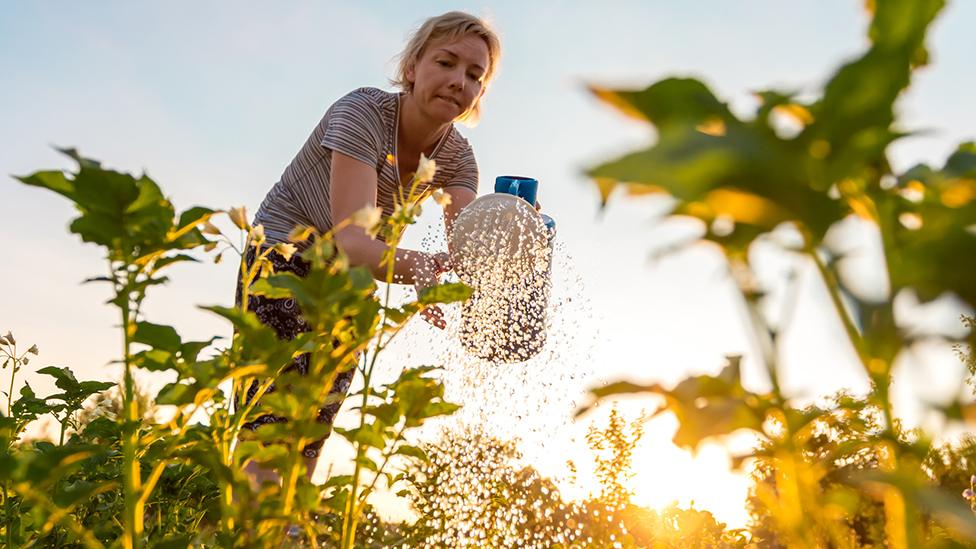
- Published30 August 2022
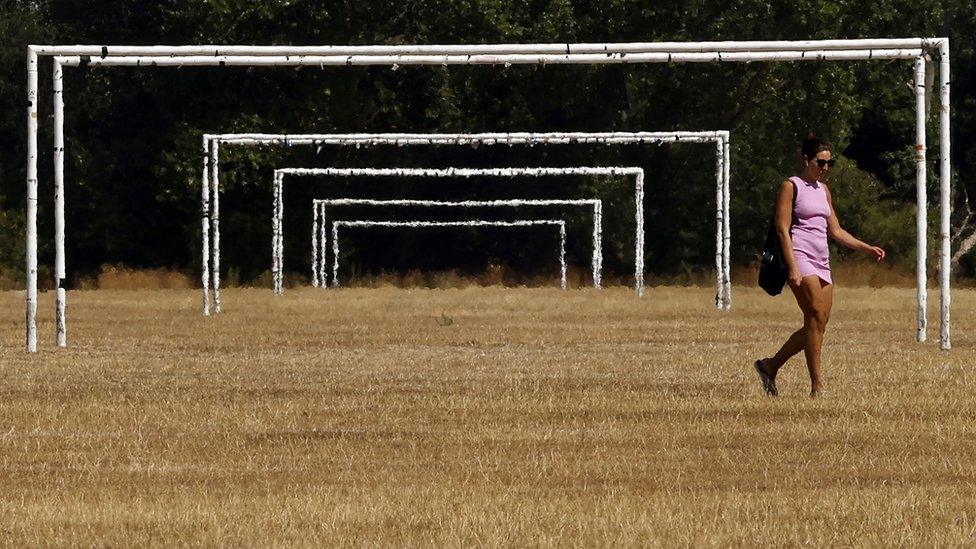
- Published23 August 2022
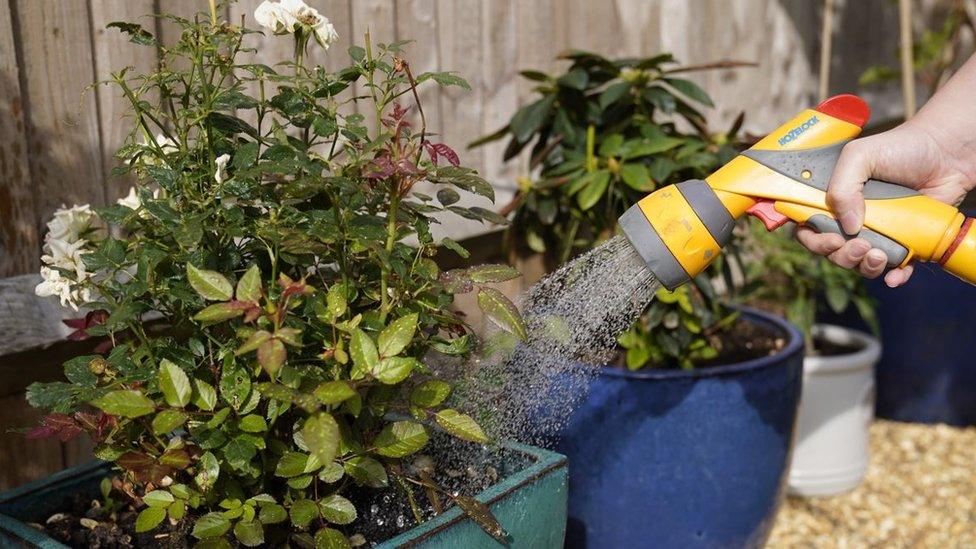
- Published16 August 2022
